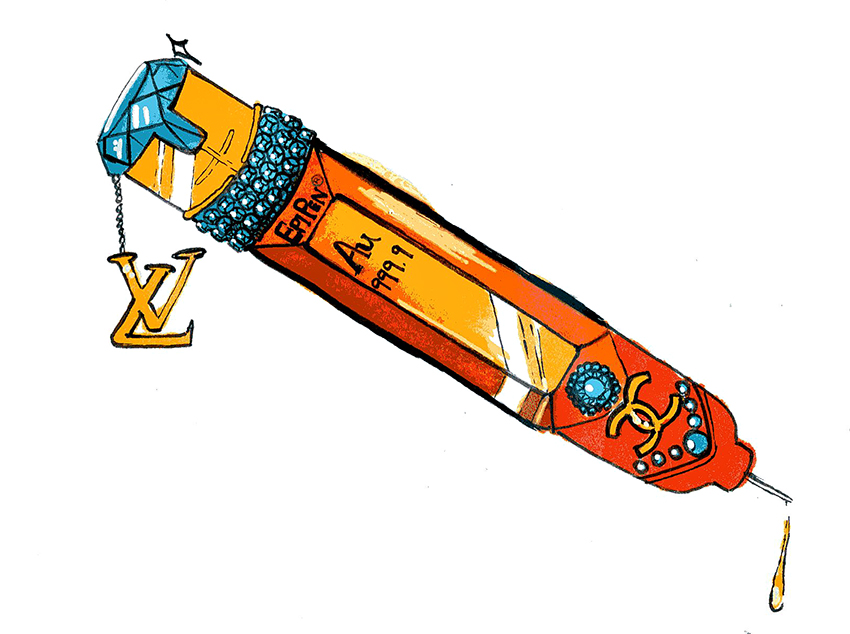Consumers have long witnessed how companies abuse their power and take advantage of dependency on their products. Recently, buyers and lawmakers were shocked by the dramatic price increase of EpiPens, a device used to give an injection to save people from deadly allergic reactions. EpiPens should not be treated as a luxury item, let alone priced like one. This can mean the difference between life and death for over 3 million Americans.
EpiPens have been used since 1977 to deliver epinephrine to people suffering allergic reactions to anything from peanuts to bee stings. Mylan, the company responsible for producing and selling EpiPens, bought the product in 2007 and sold the traditional two-packs for $100. But by May of this year the price had risen to a whopping $614 — a more than 500 percent increase in less than a decade.
Mylan and its CEO, Heather Bresch, have tried tirelessly to quell public outrage, but consumers are left with one lingering question: Why the price increase? Mylan has no competitors, nor have they drastically changed their production methods. In fact, producing the EpiPen’s active ingredient, epinephrine, is incredibly cheap. Yet, there is no answer. With the price increase, many families are left with no option but to carry expired EpiPens or none at all.
My brother was one of the 25 percent of children who have suffered their first allergic reaction in school. He was stung by a yellow jacket while attending soccer practice about four years ago. When his coach noticed his difficulty breathing, an ambulance was called immediately, as no one had an EpiPen in their possession. Ever since then my brother has carried EpiPens with him — that is, until the price increased. Now he heads to practice without one.
Last summer, Gov. Greg Abbott signed the Cameron Espinosa Act, which increased access to EpiPens in public schools. Public and charter schools are now required to train their staff on how to use the injections and have them available at all times. The law does not cover ambulances or private institutions, thus leaving a large number of people vulnerable.
The Student Services Building on UT’s campus has EpiPens available for use and staff that knows how to administer them. This is beneficial to the numerous students who find themselves unable to buy EpiPens, as UHS offers economically feasible prices in times of emergency.
While Texas lawmakers have taken steps to ensure the safety of people susceptible to allergic reactions, there is still no sign of pharmaceutical companies being stopped from drastically changing the prices of their medications. Truth is, Congress does not let Medicare negotiate prescription drug prices, a reality that is not seen in other developed countries such as Canada and Great Britain. Pharmaceutical companies often do not face repercussions for performing potentially illegal activities, including paying off one another to delay the release of generic drugs. The Federal Trade Commission has the power to sue over these violations — but they don’t often enough.
But as long as companies, including pharmaceuticals, donate generously to political campaigns, it is unlikely laws will pass that go against them. The cost of medicine will continue to rise leaving parents, students and anyone in need of medications in dire situations.
Suazo is an international relations and global studies senior from Honduras. Follow her on Twitter @giselle_suazo.





















